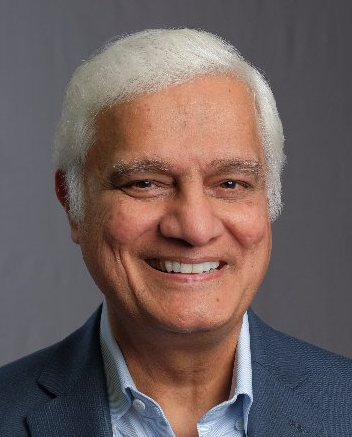
Photo by Mikael Kristenson on Unsplash
One of the tragic casualties of our age has been that of the contemplative life – a life that thinks things through, and more particularly, thinks God’s thoughts.
A person sitting at his or her desk staring out the window would never be assumed to be working. No! Thinking is not equated with work.
Yet, had Newton under his tree, or Archimedes in his bathtub, bought into that prejudice, some natural laws would still be up in the air or buried under an immovable rock. Pascal’s Pensees, (“Thoughts”) a work that has inspired millions, would have never been penned.
Barriers to thought and life
What is even more destructive is the assumption that silence is inimical to life. The radio in the car, muzak in the elevator, and the symphony entertaining callers “on hold” all add up as grave impediments to personal reflection.
Many pulpits have succumbed to the lie that anything intellectual cannot be spiritual or exciting.
In effect, the mind is denied the privilege of living with itself even briefly and is crowded with outside impulses to cope with aloneness. Aldous Huxley’s indictment, “Most of one’s life … is one prolonged effort to prevent thinking,” seems frightfully true.
Moreover, the price paid for this scenario has been devastating.
As TS Eliot questioned:
Where is the life we have lost in the living?
Where is the wisdom we have lost in knowledge?
Where is the knowledge we have lost in information?
The cycles of heaven in twenty centuries
bring us farther from God and nearer to dust.
Is there a remedy?
Exciting spiritual intelligence
May I make some suggestions? Nothing ranks higher for mental discipline than a planned and systematic study of God’s Word, from whence life’s parameters and values are planted and Christ is made known.
Paul, who loved his books and parchments, affirmed the priority of Scripture as the means to encountering Christ. And Psalm 119 promises that the God who speaks to us keeps us from being double-minded (Psalm 119:113).
The average person today actually surrenders the intellect to the world, presuming Christianity to be bereft of intelligence. And many a pulpit has succumbed to the lie that anything intellectual cannot be spiritual or exciting.
Thankfully there are exceptions.
When living in England, our family attended a church where preaching was taken quite seriously and one-hour sermons to packed auditoriums were the norm. Cambridge, being rife with skepticism, demanded a meticulous defence of each sermon text.
When we were leaving Cambridge, our youngest child, who was nine years old, declared the preaching of this church to be one of his fondest memories. Even as a little boy he had learned that when the mind is rightly approached, it filters down to the heart.
The matter I share here has far-reaching implications. We do a disservice to our youth by not crediting them with the capacity to think.
Heart, mind and soul
God places great value on the thought-life and its capacity to shape all of life.
The follower of Christ must demonstrate to the world what it means not just to think, but to think justly.
“As one thinks in his heart, so is he (Proverbs 23:7),” Solomon wrote. Jesus asserted that sin’s gravity lay at the level of the idea itself, not just the act.
Paul admonished the church at Philippi to have the mind of Christ, and to the same people he wrote: “Whatever is true, whatever is honourable, whatever is just, whatever is pure, whatever is pleasing, whatever is commendable, if there is any excellence and if there is anything worthy of praise, think on these things” (Philippians 4:8).
The follower of Christ must demonstrate to the world what it means not just to think, but to think justly. That is, in the words of aging David to his son Solomon, to “acknowledge the God of your father, and serve him with wholehearted devotion and with a willing mind, for the LORD searches every heart and understands every motive behind the thoughts. If you seek him, he will be found by you; but if you forsake him, he will reject you forever” (1 Chronicles 28:9).
With hearts, minds, and bodies, we can follow the God of creation and the Son who stepped into it.
After all, it is not that I think, therefore, I am, but rather, the great I Am has asked us to think, and therefore, we must.
This article was first published on A Slice of Infinity, a ministry of Ravi Zacharias International Ministries, and has been republished with permission.
For reflection and discussion
- How much time did you spend being alone with your thoughts in the last week? What were you thinking about the most?
- What is one question about God that you have often been asked? Have you found an intellectually satisfying answer?
- Think God-focused thoughts: What is one aspect of God that you have not yet fully grasped? How does the person of Christ begin to help you answer that question?
We are an independent, non-profit organisation that relies on the generosity of our readers, such as yourself, to continue serving the kingdom. Every dollar donated goes directly back into our editorial coverage.
Would you consider partnering with us in our kingdom work by supporting us financially, either as a one-off donation, or a recurring pledge?
Support Salt&Light




